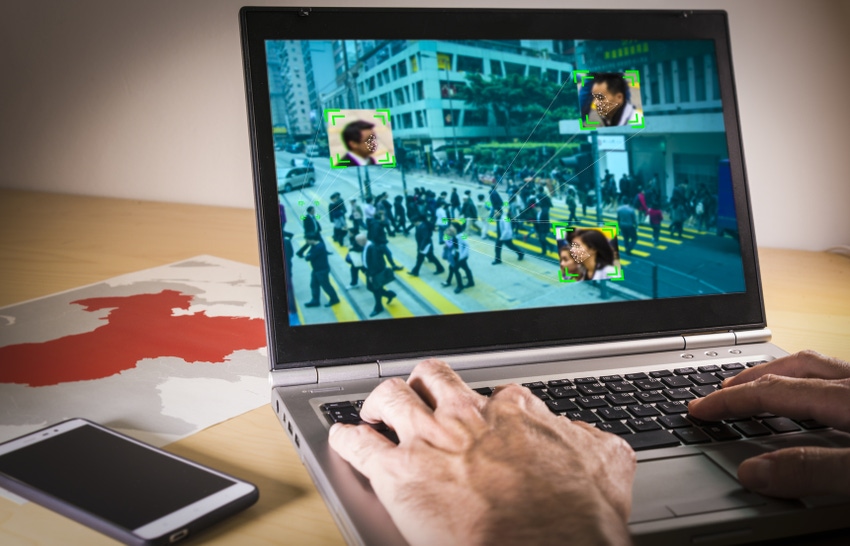FBI and London Met land in hot water over facial recognition tech
The FBI and London Metropolitan Police force will be facing some awkward conversations this week over unauthorised and potentially illegal use of facial recognition technologies.
July 8, 2019

The FBI and London Metropolitan Police force will be facing some awkward conversations this week over unauthorised and potentially illegal use of facial recognition technologies.
Starting in the US, the Washington Post has been handed records dating back almost five years which suggest the FBI and ICE (Immigration and Customs Enforcement) have been using DMV databases to build a surveillance network without the consent of citizens. The emails were obtained by Georgetown Law researchers through public records requests.
Although law enforcement agencies have normalised biometrics as part of investigations nowadays, think finger print or DNA evidence left at crime scenes, the traces are only useful when catching repeat offenders. Biometric databases are built by obtaining data from those who have been previously charged, but in this case, the FBI and ICE have been accessing data on 641 million individuals, the vast majority of which are innocent and would not have been consulted for the initiative.
In the Land of the Free, such hypocrisy is becoming almost second nature to national security and intelligence forces, who may well find themselves in some bother from a privacy perspective.
As it stands, there is no legislative or regulatory guidelines which authorise the development of such a complex surveillance system, or any public consultation with the citizens of the US. This act first, tell later mentality is something which is becoming increasingly common in country’s the US has designated as national enemies, though there is little evidence authorities in the US have any respect for the rights of their own citizens.
Heading across the pond to the UK, a report from the Human Rights, Big Data & Technology Project has identified ‘significant flaws’ with the way live facial recognition has been trialled in London by the Metropolitan Police force. The group, based out of the University of Essex Human Rights Centre, suggests it could be found to be illegal should it be challenged in court.
“The legal basis for the trials was unclear and is unlikely to satisfy the ‘in accordance with the law’ test established by human rights law,” said Dr Daragh Murray, who authored the report alongside Professor Peter Fussey.
“It does not appear that an effective effort was made to identify human rights harms or to establish the necessity of LFR [live facial recognition]. Ultimately, the impression is that human rights compliance was not built into the Metropolitan Police’s systems from the outset and was not an integral part of the process.”
The main gripe from the duo here seems to be how the Met approached the trials. LFR was approached in a manner similar to traditional CCTV, failing to take into the intrusive nature of facial recognition, and the use of biometric processing. The Met did not consider the ‘necessary in a democratic society’ test established by human rights law, and therefore effectively ignored the impact on privacy rights.
There were also numerous other issues, including a lack of public consultation, the accuracy of the technology (8 out of 42 tests were actually correct), criteria for using the technology was not clearly defined and accuracy and relevance of the ‘watchlist’ of suspects. However, the main concern from the University’s research team was that only the technical aspects of the trial were considered, not the impact on privacy.
There is a common theme in both of these instances; the authorities supposedly in place to protect our freedoms pay little attention to the privacy rights which are granted to us. There seems to be a ‘ends justify the means’ attitude with little consideration to the human right to privacy. Such attitudes are exactly what the US and UK aim to eradicate when ‘freeing’ citizens of oppressive regimes abroad.
What is perhaps the most concerned about these stories is the speed at which they are being implemented. There has been little public consultation to the appropriateness of these technologies or whether the general public is prepared to sacrifice privacy rights in the pursuit of national security. With the intrusive nature of facial recognition, authorities should not be allowed to make this decision on behalf of the general public, especially when there is so much precedent for abuse and privacy is a hot-topic following scandals in private industry.
Of course, there are examples of the establishment slowing down progress to give time for these considerations. In San Francisco, the city’s Board of Supervisors has made it illegal for forces to implement facial recognition technologies unless approval has been granted. The police force would have to demonstrate stringent justification, accountability systems and safeguards to privacy rights.
In the UK, Dr Murray and Professor Fussey are calling for a pause on the implementation or trialling of facial recognition technologies until the impact on and trade-off of privacy rights have been fully understood.
Facial recognition technologies are becoming incredibly useful when it comes to access and authentication, though there needs to be some serious conversations about the privacy implications of using the tech in the world of surveillance and police enforcement. At the moment, it seems to be nothing but an after-thought for the police forces and intelligence agencies, an incredibly worrying and dangerous attitude to have.
About the Author(s)
You May Also Like








.png?width=300&auto=webp&quality=80&disable=upscale)


_1.jpg?width=300&auto=webp&quality=80&disable=upscale)


.png?width=800&auto=webp&quality=80&disable=upscale)